
Extended reissue of the 1997 album bringing jazz and rock artists from 5 decades of ground-breaking work into a mysteriously lyrical band presenting 9 powerful compositions of jazz/rock fusion, led by drummer Tony Williams and bassist Bill Laswell with the stellar personnel of Pharoah Sanders, Buckethead, Nicky Skopelitis, Graham Haynes, Peter Apfelbaum, & Byard Lancaster.
Out of Stock
Quantity in Basket: None
Log In to use our Wish List
Shipping Weight: 3.00 units
Sample The Album:
Tony Williams-drums
Bill Laswell-basses, electronics
Pharoah Sanders-tenor saxophone
Buckethead-guitar
Nicky Skopelitis-guitar
Graham Haynes-cornet
Peter Apfelbaum-tenor saxophone
Byard Lancaster-alto saxophone, bass clarinet
Click an artist name above to see in-stock items for that artist.
UPC: 634457037632
Label: Mod Reloaded
Catalog ID: CD-MODRL-00107
Squidco Product Code: 30433
Format: CD
Condition: New
Released: 2021
Country: USA
Packaging: Digipack - 3 panel
Recorded at Greenpoint Studio, in Brooklyn, New York, by Robert Musso and Oz Fritz.
Additional recording at Orange Music, in West Orange, New Jersey, by James Dellatacoma.
"ARCANA is the collaboration between visionally bassist / producer Bill Laswell and legendary master drummer Tony Williams. A hybrid fusion of avant-rock and futuristic-jazz. Joined by John Coltrane acolyte, saxophonist Pharoah Sanders, and mutant guitar shredder Buckethead with cornetist Graham Haynes, guitarist Nicky Skopelitis, saxophonist Peter Apfelbaum and saxophonist Byard Lancaster. A bold and uncompromising music with an unleashed sense of power, a blast of the future with strong references to past influences. Flashes of the Tony Williams Lifetime, King Crimson, Mahavishnu Orchestra, Last Exit and much more. A progressive landmark."-MOD Reloaded
Artist Biographies
• Show Bio for Tony Williams "Anthony Tillmon Williams (December 12, 1945 – February 23, 1997) was an American jazz drummer. Williams first gained fame in the band of trumpeter Miles Davis and pioneered jazz fusion. He was inducted into the Modern Drummer Hall of Fame in 1986. During his lifetime, music critic Robert Christgau described Williams as "probably the best drummer in the world". Williams was born in Chicago and grew up in Boston. He was of African, Portuguese, and Chinese descent. He studied with drummer Alan Dawson at an early age, and began playing professionally at the age of 13 with saxophonist Sam Rivers. Saxophonist Jackie McLean hired Williams when he was 16. At 17 Williams gained attention by joining Miles Davis in what was later dubbed Davis's Second Great Quintet. Williams was a vital element of the group, called by Davis in his autobiography "the center that the group's sound revolved around." His playing helped redefine the role of the jazz rhythm section through the use of polyrhythms and metric modulation. Meanwhile, he recorded his first two albums as leader for Blue Note label, Life Time (1964) and Spring (1965). He also recorded as a sideman for the label including, in 1964, Out to Lunch! with Eric Dolphy and Point of Departure with Andrew Hill. In 1969, he formed a trio, the Tony Williams Lifetime, with John McLaughlin on guitar and Larry Young on organ. Lifetime was a pioneering band of the fusion movement. Their first album was Emergency!. After the departures of McLaughlin and bassist Jack Bruce, who had joined the group for its second album, and several more releases, Lifetime disbanded. In 1975, Williams put together a band he called "The New Tony Williams Lifetime", featuring bassist Tony Newton, pianist Alan Pasqua, and English guitarist Allan Holdsworth, which recorded two albums for Columbia Records, Believe It and Million Dollar Legs. In mid-1976, Williams was a part of a reunion with his colleagues from the Miles Davis band: keyboardist Herbie Hancock, bassist Ron Carter, and saxophonist Wayne Shorter. Davis was in the midst of a six-year hiatus and was "replaced" by Freddie Hubbard. The record was later released as V.S.O.P. The group toured and for several years and a series of live albums were released under the name "V.S.O.P." or "V.S.O.P.: The Quintet". In 1979, Williams, McLaughlin and bassist Jaco Pastorius united for a one-time performance at the Havana Jazz Festival. This trio came to be known as the Trio of Doom, and a recording of their performance (along with some studio tracks recorded in New York shortly thereafter) was released in 2007. It opens with a powerful drum improvisation by Williams, followed by McLaughlin's "Dark Prince" and Pastorius' "Continuum", Williams' original composition "Para Oriente" and McLaughlin's "Are You the One?" Williams and Pastorius had also played together on the Herbie Hancock track "Good Question" from his 1978 album Sunlight. With the group Fuse One, Williams released two albums in 1980 and 1982. In 1985, he returned to Blue Note and the result was a series of recordings for the label beginning with Foreign Intrigue, which featured the playing of pianist Mulgrew Miller and trumpeter Wallace Roney. Later that year he formed a quintet with Miller, Roney, saxophonist Bill Pierce, and bassist Charnett Moffett (later Ira Coleman). This band played Williams' compositions almost exclusively. Williams also played drums for the band Public Image Limited, fronted by John Lydon (a.k.a. Johnny Rotten of the Sex Pistols), on their release Album/Cassette/Compact Disc (1986, the album title varied depending on the format). He played on the songs "FFF", "Rise" (a modest hit), and "Home". Bass guitarist Bill Laswell co-wrote those three songs with Lydon. The other drummer on that album was Ginger Baker. Williams lived and taught in the San Francisco Bay Area until his death from a heart attack following routine gall bladder surgery. One of his final recordings was The Last Wave by the trio known as Arcana, a release organized by Bill Laswell." ^ Hide Bio for Tony Williams • Show Bio for Bill Laswell "Over the course of some three decades, visionary bassist-producer Bill Laswell has been one of the most prolific and restlessly creative forces in contemporary music. A sound conceptualist who has always been a step ahead of the curve, he has put his inimitable stamp on nearly 3,000 recording projects by such artists as Mick Jagger, Yoko Ono, Iggy Pop, Laurie Anderson, Brian Eno, Bootsy Collins, Nine Inch Nails, Motorhead, Peter Gabriel, Blur, The Ramones, George Clinton, Pharaoh Sanders, The Dalai Lama, Matisyahu, Angelique Kidjo, DJ Krush, RAMM:ΣLL:ZΣΣ, Sting, The Last Poets, Afrika Bambaataa, Julian Schnabel, Whitney Houston, Manu Dibango, Fela Kuti and most notably Herbie Hancock, who collaborated with Laswell for the pivotal 1983 smash-hit single "Rock-It" which introduced scratching to the mainstream, inspired a generation of turntablists and gave the great jazz pianist instant street credibility among the burgeoning hip-hop cognoscenti. Laswell's sense of creative daring as a producer was further demonstrated on several recordings that have kept him on the cutting edge, including Afrika Bambaataa's collaboration with John Lydon (aka Johnny Rotten of Sex Pistols fame) on World Destruction and PiL's Album (which brought together an unlikely pairing of drumming greats Ginger Baker and Tony Williams, synth-pop pioneer Ryuichi Sakamoto of Yellow Magic Orchestra fame and rising guitar star Steve Vai). His spoken word collaborations with William S. Burroughs and expatriate writer-composer Paul Bowles have gone against the grain of music industry trends while his radical remixes (or re-constructions) of landmark recordings by Miles Davis (Panthalassa), Carlos Santana (Divine Light), Bob Marley (Dreams of Freedom) and a vast scan of dub-related and atmospheric ambient projects have gone on to further defined Laswell's presence as a revolutionary ikonoklast. Bill Laswell has helped in generating several innovative recording labels such as Celluloid, Subharmonic, Black Arc, and Innerhythmic. Along with Chris Blackwell, founder of Island Records (Bob Marley and U2), he established the AXIOM label in 1989. M.O.D. Technologies, his most recent imprint is releasing projects by Method Of Defiance, Lee "Scratch" Perry, PRAXIS, Garrison Hawk with Sly & Robbie, Bernie Worrell, The Process (with Red Hot Chili Peppers' drummer Chad Smith and pianist Jon Baptiste) and progressive/futuristic music from Ethiopia (CDs/DVDs). As a player, Laswell's bass lines resound with rare authority on groundbreaking projects by Tabla Beat Science (with Zakir Hussain and Ustad Sultan Khan), his avant-funk band Material, the apocalyptic assault of Last Exit (with Sonny Sharrock), his progressive dub effected Method of Defiance and the throbbingly intense power trios, Massacre (with Fred Frith and Charles Hayward), Painkiller (with John Zorn and Mick Harris), Praxis (with Buckethead and Brain), Blixt (with Raoul Bjorkenheim and Morgan Agren) and the latest (2014) Bladerunner (with John Zorna and Slayer drummer Dave Lombardo). Laswell's artistic reach has consistently extended to the continent of Africa, creating ground-breaking, evolutionary snd controversial recording projects in Morocco, Senegal, Mali, Gambia and most recently, Ethiopia where he has established a base for developing new as well as legendary artists, just as he did in the South Bronx some 30 years ago. A veteran of 300 plus journeys to Japan, where he has worked with everyone from The Gagaku Orchestra (Japan's ancient music, only played for emperors for 1500 years), to avant-jazz, rock, hip-hop and DJ culture. An eternal musical renegade, Bill Laswell has always played by his own rules." ^ Hide Bio for Bill Laswell • Show Bio for Pharoah Sanders "Pharoah Sanders (born October 13, 1940) is an American jazz saxophonist. Saxophonist Ornette Coleman once described him as "probably the best tenor player in the world." Emerging from John Coltrane's groups of the mid-1960s, Sanders is known for his overblowing, harmonic, and multiphonic techniques on the saxophone, as well as his use of "sheets of sound". Sanders is an important figure in the development of free jazz; Albert Ayler famously said: "Trane was the Father, Pharoah was the Son, I am the Holy Ghost". Pharoah Sanders was born Farrell Sanders on October 13, 1940 in Little Rock, Arkansas. His mother worked as a cook in a school cafeteria, and his father worked for the City of Little Rock. An only child, Sanders began his musical career accompanying church hymns on clarinet. His initial artistic accomplishments were in art, but when he was at Scipio Jones High School in North Little Rock, Sanders began playing the tenor saxophone. The band director, Jimmy Cannon, was also a saxophone player and introduced Sanders to jazz. When Cannon left, Sanders, although still a student, took over as the band director until a permanent director could be found. During the late 1950s, Sanders would often sneak into African-American clubs in downtown Little Rock to play with acts that were passing through. At the time, Little Rock was part of the touring route through Memphis, Tennessee, and Hot Springs for R&B and jazz musicians, including Junior Parker. Sanders found himself limited by the state’s segregation and the R&B and jazz standards that dominated the Little Rock music scene. After finishing high school in 1959, Sanders moved to Oakland, California, and lived with relatives. He briefly attended Oakland Junior College and studied art and music. Once outside the Jim Crow South, Sanders could play in both black and white clubs. His Arkansas connection stuck with him in the Bay Area with the nickname of “Little Rock.” It was also during this time that he met and befriended John Coltrane. Pharoah Sanders began his professional career playing tenor saxophone in Oakland, California. He moved to New York City in 1961 after playing with rhythm and blues bands. He received his nickname "Pharoah" from bandleader Sun Ra, with whom he was performing. After moving to New York, Sanders had been destitute: "He was often living on the streets, under stairs, where ever he could find to stay, his clothes in tatters." Sun Ra gave him a place to stay, bought him a new pair of green pants with yellow stripes (which Sanders hated but had to have), encouraged him to use the name 'Pharoah', and gradually worked him into the band." Sanders came to greater prominence playing with John Coltrane's band, starting in 1965, as Coltrane began adopting the avant-garde jazz of Albert Ayler, Sun Ra and Cecil Taylor. Sanders first performed with Coltrane on Ascension (recorded in June 1965), then on their dual-tenor recording Meditations (recorded in November 1965). After this Sanders joined Coltrane's final quintet, usually performing very lengthy, dissonant solos. Coltrane's later style was strongly influenced by Sanders. Although Sanders' voice developed differently from Coltrane, Sanders was strongly influenced by their collaboration. Spiritual elements such as the chanting in Om would later show up in many of Sanders' own works. Sanders would also go on to produce much free jazz, modified from Coltrane's solo-centric conception. In 1968 he participated in Michael Mantler and Carla Bley's Jazz Composer's Orchestra Association album The Jazz Composer's Orchestra, featuring Cecil Taylor, Don Cherry, Larry Coryell and Gato Barbieri. Pharoah's first album, Pharoah's First, wasn't what he expected. The musicians playing with him where much more straightforward than Sanders, which made the solos played by the other musicians a bit out of place. Starting in 1966 Sanders signed with Impulse! and recorded Tauhid that same year. His years with Impulse! caught the attention of jazz fans, critics, and musicians alike, including John Coltrane, Ornette Coleman, and Albert Ayler. In the 1970s, Sanders continued to produce his own recordings and also continued to work with the likes of Alice Coltrane on her Journey In Satchidananda album. Most of Sanders' best-selling work was made in the late 1960s and early 1970s for Impulse Records, including the 30-minute wave-on-wave of free jazz "The Creator has a Master Plan" from the album Karma. This composition featured vocalist Leon Thomas's unique, "umbo weti" yodeling, and Sanders' key musical partner, pianist Lonnie Liston Smith, who worked with Sanders from 1969-1971. Other members of his groups in this period include bassist Cecil McBee, on albums such as Jewels of Thought, Izipho Zam, Deaf Dumb Blind and Thembi. Although supported by African-American radio, Sanders' brand of free jazz became less popular. From the experiments with African rhythms on the 1971 album Black Unity (with bassist Stanley Clarke) onwards he began to diversify his sound. In the late 1970s and 1980s, Sanders explored different musical modes including R&B (Love Will Find a Way), modal jazz, and hard bop. Sanders left Impulse! in 1973 and redirected his compositions back to earlier jazz conventions. He continued to explore the music of different cultures and refine his compositions. However, he found himself floating from label to label. He found a permanent home with a small label called Theresa in 1987, which was sold to Evidence in 1991. However Sanders would continue to be frustrated with record labels for most of the 1990s. Also during this time, he went to Africa for a cultural exchange program for the U.S. State Department. Sanders’s major-label return would finally come in 1995 when Verve Records released Message from Home, followed by Save Our Children (1998). But again, Sanders’s disgust with the recording business prompted him to leave the label. In 1992, Sanders appears on a reissue (Ed Kelly and Pharoah Sanders) for the Evidence label of a recording that he completed for Theresa Records in 1979 entitled Ed Kelly and Friend. The 1992 version contains extra tracks which feature Pharoah's pupil Robert Stewart (saxophonist). This was Stewart's first recording for a jazz label. In 1994 he traveled to Morocco to record the Bill Laswell-produced album The Trance Of Seven Colors with Gnawa musician Mahmoud Guinia. The same year, Sanders appeared on the Red Hot Organization's album, Stolen Moments: Red Hot + Cool, on the track "This is Madness" with Umar Bin Hassan and Abiodun Oyewole and the bonus track, "The Creator Has A Master Plan (Trip hop Remix)." The album was named "Album of the Year" by Time. Sanders worked with Laswell, Jah Wobble, and others on the albums Message From Home (1996) and Save Our Children (1999). In 1999, he complained in an interview that despite his pedigree, he had trouble finding work. In 1997 he was featured on several Tisziji Munoz albums also including Rashied Ali. In the 2000s, a resurgence of interest in jazz kept Sanders playing festivals including the 2007 Melbourne Jazz Festival and the 2008 Big Chill Festival, concerts, and releasing albums. He has a strong following in Japan, and in 2003 recorded with the band Sleep Walker. In 2000, Sanders released Spirits and, in 2003, a live album titled The Creator Has a Master Plan. He was awarded an NEA Jazz Masters Fellowship for 2016 and was honored at a tribute concert in Washington DC on April 4, 2016." ^ Hide Bio for Pharoah Sanders • Show Bio for Buckethead "Brian Patrick Carroll (born May 13, 1969), known professionally as Buckethead, is an American multi-instrumentalist musician who has received critical acclaim for his electric guitar playing, and is considered one of today's most innovative guitarists. His music spans many genres, including progressive metal, funk, blues, bluegrass, ambient, and avant-garde music. He performs primarily as a solo artist, though he has collaborated extensively with a wide variety of high-profile artists such as Bill Laswell, Bootsy Collins, Bernie Worrell, Iggy Pop, Les Claypool, Serj Tankian, Bill Moseley, Mike Patton, Viggo Mortensen, That 1 Guy, Bassnectar, and was a member of Guns N' Roses from 2000 to 2004. He has released 305 studio albums, four special releases, and one EP. He has also performed on more than 50 other albums by other artists. When performing, Buckethead wears a KFC bucket on his head, emblazoned with an orange bumper sticker reading FUNERAL in block letters, and an expressionless plain white mask inspired by Halloween 4: The Return of Michael Myers. At one point, he changed to a plain white bucket without a KFC logo, but subsequently reverted to his trademark KFC bucket. He also incorporates nunchaku and robot dancing into his stage performances. Buckethead has been voted number 8 on a list in GuitarOne magazine of the "Top 10 Fastest Guitar Shredders of All Time" as well as being included in Guitar World's lists of the "25 all-time weirdest guitarists" and the "50 fastest guitarists of all time". Buckethead has written and performed music for major motion pictures, including Saw II, Ghosts of Mars, Beverly Hills Ninja, Mortal Kombat, Mortal Kombat: Annihilation, Last Action Hero, and contributed lead guitar to the track "Firebird" featured on the Mighty Morphin Power Rangers: The Movie soundtrack." ^ Hide Bio for Buckethead • Show Bio for Nicky Skopelitis "Nicky Skopelitis (born January 19, 1960) is an American guitarist and composer of Greek descent. He also has performed on banjo, oud, lute, keyboards and other instruments. Although Skopelitis has recorded few albums as a bandleader, he has appeared on many more recordings, often collaborating with prolific bass guitarist and producer Bill Laswell. Until 1987 or so, he used the spelling "Scopelitis" for his last name. " ^ Hide Bio for Nicky Skopelitis • Show Bio for Graham Haynes "Graham Haynes (born September 16, 1960 in Brooklyn, New York) is an American cornetist, trumpeter and composer. The son of jazz drummer Roy Haynes, Graham is known for his work in nu jazz, fusing jazz with elements of hip hop and electronic music. With aspirations to push jazz beyond its traditional boundaries, Graham Haynes' first foray into electronic music came in 1979 upon meeting alto saxophonist Steve Coleman. Together, they formed a band called Five Elements, which launched an influential group of improvisers called M-Base Collective. After the formation of his own ensemble – Graham Haynes and No Image – and the subsequent release of an album (What Time It Be?), Haynes would spend the balance of the 1980s studying a wide range of African, Arabic and South Asian Music. After a move to France in 1990, Haynes incorporated these far-off influences into his next two releases – Nocturne Parisian and Griot's Footsteps. Haynes returned to New York City in 1993 to take advantage of the flourishing Hip-Hop scene; and the resulting album was the sample heavy Transition. After the release of yet another hybridized album – 1996's Tones For The 21st Century – Haynes discovered drum 'n' bass and began working with some of the genres finest DJs and producers in London and the U.S. This manifested in the release of 2000s BPM, a fusion of drum n' bass beats with the classical music of Richard Wagner. Over the years, Haynes has kept busy with several critically acclaimed multimedia projects, composed the score for films Flag Wars and The Promise, and lectured at New York University, while receiving two nominations for the prestigious Alpert Award For The Arts. He has collaborated with artists such as Roy Haynes, Cassandra Wilson, Vernon Reid, Meshell Ndegeocello, The Roots, David Murray, George Adams, Ed Blackwell, Bill Laswell, Steve Williamson, and Bill Dixon. He is featured on Vijay Iyer's 2017 ECM album, Far From Over." ^ Hide Bio for Graham Haynes • Show Bio for Peter Apfelbaum "Born in Berkeley, California in 1960, Peter Apfelbaum started playing drums at the age of three, taking up piano and saxophone in elementary school and forming his first band at age 11. A product of the Berkeley Schools' pioneering Jazz Project, Apfelbaum began performing professionally while in his early teens and was a member of the award-winning Berkeley High Jazz Ensemble under the direction of Phil Hardymon. In 1977 - his senior year at Berkeley High - he formed the 17-piece Hieroglyphics Ensemble as a vehicle for composing and exploring non-traditional musical forms. The Ensemble was initially largely comprised of fellow BHS classmates, some of whom would later move to New York and achieve recognition in their own right. The band originally included pianist Benny Green, saxophonist Craig Handy and trumpeter Steven Bernstein and would later feature saxophonist Joshua Redman prior to his move to NY. The band released their self-produced debut album, Pillars, in 1979 and began to attract international attention for their unique mix of elements of world music with the aesthetic of the jazz avant-garde. Around this time Apfelbaum made his first sojourn to New York, where he worked with Carla Bley, David Amram and the late Eddie Jefferson. He toured Europe for the first time in the Fall of 1979 with Karl Berger's Woodstock Workshop Orchestra, an all-star band which included Lee Konitz, Oliver Lake, Don Cherry, Leroy Jenkins and Trilok Gurtu." ^ Hide Bio for Peter Apfelbaum • Show Bio for Byard Lancaster "Byard Lancaster (August 6, 1942 – August 23, 2012) was an avant-garde jazz saxophonist and flutist. He attended two colleges, one for music, before attending the Berklee College of Music. He moved to New York City and participated in jam sessions which included saxophonist Archie Shepp and drummer Elvin Jones. In 1965, he recorded Sunny Murray Quintet with the album's eponymous musician in New York, performed in the Parisian Actuel festival with him in 1969, and continued to work in the drummer's groups throughout his career. By the 1970s, Lancaster had played with musicians such as McCoy Tyner, Khan Jamal, and Sun Ra, as well as some outside of jazz, such as blues pianist Memphis Slim and blues guitarist Johnny Copeland. Near the end of his life he performed regularly with cellist David Eyges and recorded as a leader and sideman for the record label Creative Improvised Music Projects. He died of pancreatic cancer on August 23, 2012." ^ Hide Bio for Byard Lancaster
11/20/2024
Have a better biography or biography source? Please Contact Us so that we can update this biography.
11/20/2024
Have a better biography or biography source? Please Contact Us so that we can update this biography.
11/20/2024
Have a better biography or biography source? Please Contact Us so that we can update this biography.
11/20/2024
Have a better biography or biography source? Please Contact Us so that we can update this biography.
11/20/2024
Have a better biography or biography source? Please Contact Us so that we can update this biography.
11/20/2024
Have a better biography or biography source? Please Contact Us so that we can update this biography.
11/20/2024
Have a better biography or biography source? Please Contact Us so that we can update this biography.
11/20/2024
Have a better biography or biography source? Please Contact Us so that we can update this biography.
Track Listing:
1. Black Money 4:17
2. Gone Tomorrow 9:38
3. Illuminator 6:06
4. Into the Circle 9:26
5. Returning 4:29
6. Calling Out the Blue Light 6:38
7. Circles of Hell 7:15
8. Wheeless on a Dark River 4:28
9. The Earth Below 5:29
Improvised Music
Jazz
Free Improvisation
Electro-Acoustic
NY Downtown & Metropolitan Jazz/Improv
Octet Recordings
Melodic and Lyrical Jazz
Staff Picks & Recommended Items
Jazz & Improvisation Based on Compositions
Search for other titles on the label:
Mod Reloaded.


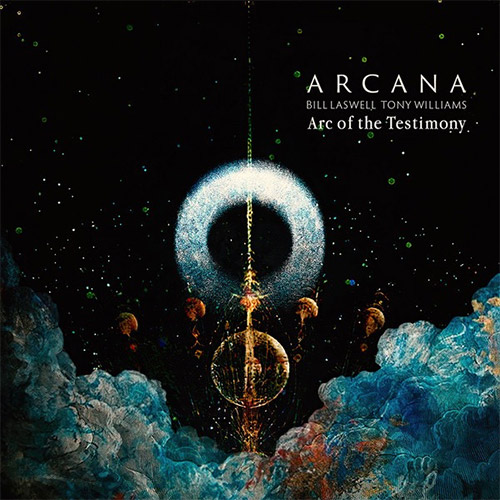


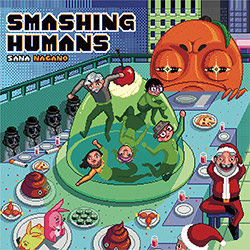

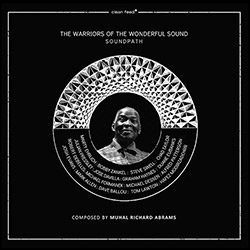

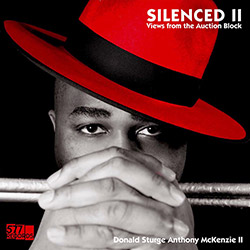
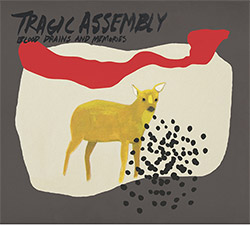





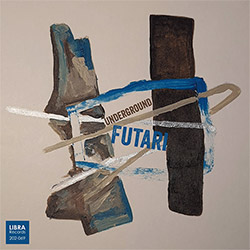

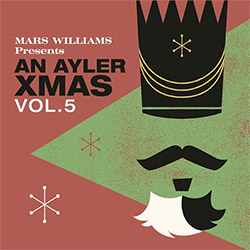

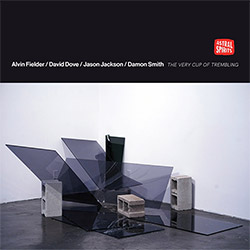
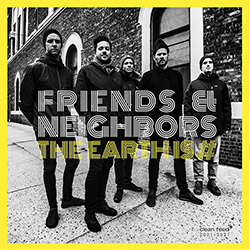
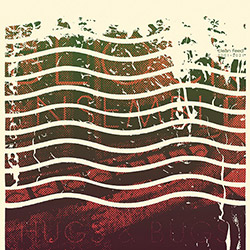

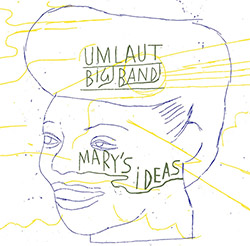
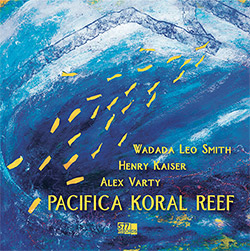
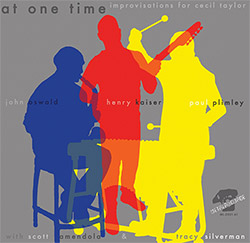
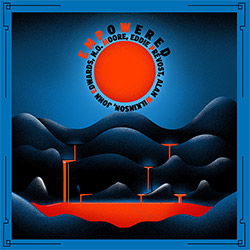
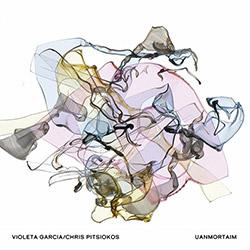


![Guy, Barry / Ken Vandermark: Occasional Poems [2 CDs]](https://www.teuthida.com/productImages/misc4/34849.jpg)
![Novoa / Carter / Mela Trio: Vol.1 [VINYL]](https://www.teuthida.com/productImages/misc4/35236.jpg)


![Elephant9 : Mythical River [VINYL]](https://www.teuthida.com/productImages/misc4/34624.jpg)
![Evans, Peter (Evans / Eldh / Black): Extra [VINYL]](https://www.teuthida.com/productImages/misc4/35279.jpg)

![McPhee, Joe: Straight Up, Without Wings [BOOK]](https://www.teuthida.com/productImages/misc4/35454.jpg)
![Jeck, Philip: rpm [2 CDs]](https://www.teuthida.com/productImages/misc4/35455.jpg)













![Barker / Parker / Irabagon: Bakunawa [VINYL]](https://www.teuthida.com/productImages/misc4/35533.jpg)
![Blaser, Samuel / Marc Ducret / Peter Bruun: Dark Was The Night, Cold Was The Ground [VINYL 10-inch]](https://www.teuthida.com/productImages/misc4/35492.jpg)








![Warren, Kenny (Warren / Hoffman / Ellman): Sweet World [VINYL]](https://www.teuthida.com/productImages/misc4/35451.jpg)




![Blake, Ran / Dave Knife Fabris: Live Amsterdam 2006, First Visit [CD + POSTCARDS]](https://www.teuthida.com/productImages/misc4/35275.jpg)













![DNS: Taking Big Bites Of The Khandas Three Cafes Deep [2 CDs]](https://www.teuthida.com/productImages/misc4/35334.jpg)




![Cleaver, Gerald: The Process [VINYL]](https://www.teuthida.com/productImages/misc4/34966.jpg)




![Alva Noto: HYbr:ID II [VINYL 2 LPs]](https://www.teuthida.com/productImages/misc4/35201.jpg)

![Baron, Derek / Luke Martin: Distinct and Concealed [CASSETTE + DOWNLOAD]](https://www.teuthida.com/productImages/misc4/35079.jpg)

![Lyle, Erica Dawn : Colonial Motels [CASSETTE + DOWNLOAD]](https://www.teuthida.com/productImages/misc4/35080.jpg)









![Sanna, Claudio: Compositori Sardi Contemporanei II [2 CDs]](https://www.teuthida.com/productImages/misc4/35317.jpg)







![Zurria, Manuel: Fame di Vento [3 CDs]](https://www.teuthida.com/productImages/misc4/35167.jpg)

![Granberg, Magnus / Nattens Inbrott / Skogen: Holde Traume, Kehret Wieder! [2 CDs]](https://www.teuthida.com/productImages/misc4/35038.jpg)
![Frey, Jurg: Outermost Melodie [2 CDs]](https://www.teuthida.com/productImages/misc4/35039.jpg)

![Pavone, Jessica: Reverse Bloom [VINYL]](https://www.teuthida.com/productImages/misc4/34895.jpg)




![Modney (Modney / Wooley / Gentile / Roberts / Pluta / Symthe / ...): Ascending Primes [2 CDs]](https://www.teuthida.com/productImages/misc4/34852.jpg)









![Elephant9 with Terje Rypdal: Catching Fire [VINYL 2 LPs]](https://www.teuthida.com/productImages/misc4/35355.jpg)
![Deerlady (Obomsawin, Mali / Magdalena Abrego): Greatest Hits [VINYL]](https://www.teuthida.com/productImages/misc4/34876.jpg)




![Haino, Keiji: Black Blues [2 CDs]](https://www.teuthida.com/productImages/misc4/35109.jpg)



![Surplus 1980: Illusion of Consistency [CD]](https://www.teuthida.com/productImages/misc4/35069.jpg)
![Staiano, Moe: Away Towards the Light [VINYL + DOWNLOAD]](https://www.teuthida.com/productImages/misc4/35037.jpg)



![Caveira (Gomes / Sousa / Abras / Ferrandini): Ficar Vivo [VINYL]](https://www.teuthida.com/productImages/misc4/34643.jpg)
![Gregg, J. J. / David Van Auken: Lunar Prairie [CD w/ DOWNLOAD]](https://www.teuthida.com/productImages/misc4/34611.jpg)

![Coultrain: Mundus [VINYL]](https://www.teuthida.com/productImages/misc4/32439.jpg)
![Mattin: Songbook #6 [VINYL]](https://www.teuthida.com/productImages/misc4/27317.jpg)
![Punkappella: Wake Up [7-inch VINYL]](https://www.teuthida.com/productImages/misc4/17519.jpg)
![Residents, The: WARNING: UNiNC.: Live And Experimental Recordings 1971-1972 [VINYL 2 LPs]](https://www.teuthida.com/productImages/misc4/31521.jpg)
![Coultrain: Phantasmagoria [VINYL]](https://www.teuthida.com/productImages/misc4/30142.jpg)
![Lennon, Sean Ono: Asterisms [VINYL]](https://www.teuthida.com/productImages/misc4/34517.jpg)

![Coley, Byron: Dating Tips for Touring Bands [VINYL]](https://www.teuthida.com/productImages/misc4/17906.jpg)

![Lost Kisses: My Life is Sad & Funny [DVD]](https://www.teuthida.com/productImages/misc4/lostKissesDVD.jpg)